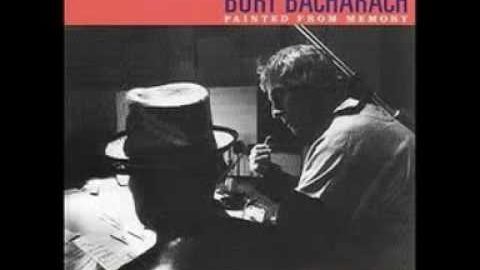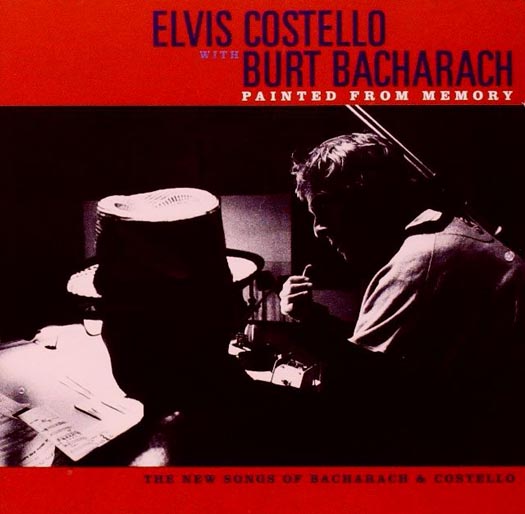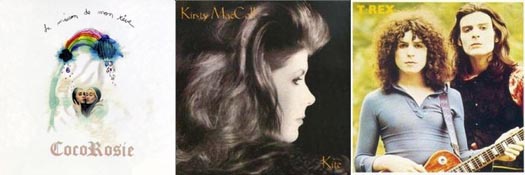
In the mid-1980s a friend of mine with whom I’d gone to school at Templeton Secondary on Vancouver’s east side, and someone with whom I’d worked in radio — his achievements in radio were far greater than mine — met a woman, fell in love, and in 1988 the two were married, in Nova Scotia, her home since the late 1970s, where she worked as a librarian.
Now, this woman had in the 1960s, while in her teens and early twenties, had a very successful career as a model, and on the advice of her financial advisor invested in property in Nova Scotia — which to this day remains undervalued — and specifically in the community where her parents visited each summer when she was a child, the east coast township of Annapolis Royal, a beautiful waterfront community nestled in the Annapolis Valley.
Both my friend and his new bride — who had moved to British Columbia with her new husband and taken on a job as a librarian in a rural, waterfront community just outside of Metro Vancouver — were people I spoke with regularly and visited often. We were close, and whenever they were in town, we would go for dinner at a comforting restaurant where the food was good, somewhere in the city of Vancouver. For seven years, the two of them were a regular fixture within my social circle, and good friends.
In early March of 1995, when I called over to their home one Wednesday evening, quite surprisingly my friend Corinne did not answer the phone — Donald answered the phone. “Where is Corinne?” I asked. “Oh, she’s at a library Board meeting,” he answered. And so it went, twice a week, every week through near the end of June — Corinne never available, at a meeting or out with friends, or a walk, in town, or otherwise unavailable. Until …
One day in late June, I got a call from Corinne; she was back in Nova Scotia, had returned there from her home in British Columbia, had filed for divorce from Donald, and was as lonely as lonely could be, she told me. “Raymond, come visit me in Annapolis Royal. I miss you, and I need to see you. Come stay with me this summer, and I promise that the two of us will have a good time together, and that you’ll just love Nova Scotia.”
And thus began, the first of 15 consecutive summer visits I made to Annapolis Royal, Nova Scotia and environs, a lovely community, where I met everyone in town, during the summer months becoming something of a fixture in the community, where people pleaded with me to move back east, where I was repeatedly offered the job as general manager of the King’s Theatre, where I could purchase a house on 10 acres for $40,000, where I helped run NDP campaigns on three occasions (and where I met a callow young fellow by the name of Stephen McNeil who, as I predicted when speaking with him, would be Premier of the province one day — a prediction, quite obviously, which came to pass), where I fell in love with the community and all the wonderful people I met over the years, recovering from the hurly burly of my west coast life, over the weeks I spent each summer in the tranquil community on the Annapolis River.
All was well in each of the summers, until 2010, when I travelled back east to Annapolis Royal to celebrate my 60th birthday. Corinne, a decided personality, had over the years become increasingly dissatisfied with her life, both in Annapolis Royal, and with life in general.
As the years passed, she made it clear that my visit was to be shorter, more truncated, no longer than 10 days, after which I must leave. On my birthday in 2010, which we celebrated at a wonderful waterfront restaurant, Corinne insisted I pay for the two of us, a bill which far exceeded $150 — which for me was a lot of money, when added to the now $1000 airfare, my stay in Halifax on the way to Annapolis Royal, and on the way back, and Corinne’s insistence that I pay for all expenses for the two of us during my stay in her home, which was strange given that Corinne owned two large, revenue-generating apartment buildings in town, as well as thriving storefront properties, and her own, nicely-situated waterfront home.
In the summer of 2010, with Stephen McNeil finally having fulfilled his commitment to bring high-speed internet to his rural Annapolis Royal constituency, I also helped Corinne establish a stable Wi-Fi connection, set up her new laptop computer, got her on the world wide web, and placed a couple of thousand mp3s of her favourite music — like me, she’s a big fan of progressive country music — onto her newly acquired computer.
All was right with the world, as four of the nights I was in Annapolis Royal, the two of us were invited out for dinner at the homes of various mutual friends, enjoyed an incredibly bountiful church dinner on the Friday nights, visiting at the farmer’s market on Wednesday & Saturday, where I picked up a handful of hand-sewn wash cloths and nautically-themed cotton coasters, as well as a beautiful and a small, lovingly hand-sewn quilt, paying only $10 for the latter — all of which items I enjoy to this day!

All was well until the Saturday evening, when Corinne and I repaired to the King’s Theatre, to attend a student concert of a choir, musicians, and individual singers hailing from Annapolis Royal, a beautiful night of music and song celebrated with the townspeople, and visitors from across the Maritimes and the U.S. northeast — and me, of course.
On that evening, Corinne was working the front of the house prior to the concert starting, supervising the volunteer staff, making sure tickets were taken, the concession was working well & efficiently, and persons taken to their seats in readiness for the concert that was about to begin. One of the volunteers was a 17-year-old young woman, recently graduated with first class honours from Annapolis Royal Secondary and enrolled for the fall session at Dalhousie University, as becoming as could be, all primly dressed (as Corinne insisted) in a black skirt with a hem no more than two inches above the knee, and a starched white blouse, hair neatly kept, and all freshly scrubbed and presentable, a picture of innocence and sophistication.
As it happens, I first met this young woman when she was just a toddler, when Corinne and I visited at her parent’s home, which we both did each of the 15 years I travelled back east. So, I had watched this young girl grow into a woman of substance and no little élan, the apple of her parent’s eye and I’m sure they thought, a tribute to their superior parenting skills — which is to say, they loved her, brought her up with the values of service to the community, teaching her to express kindness and consideration for all.
Now, I hadn’t noticed it, but Corinne did, and as she was standing next to me, called the young woman over to angrily express her disdain at the …
“… entirely inappropriate nose ring you are wearing, which I will simply not have. You know the dress code, and have failed to meet that dress code. In consequence, I am suspending your participation as a volunteer, sending you home immediately, with an instruction that you may not return until I have spoken with your parents, and ensured that you have removed that damnable ring from your nose.”
The above said in a bitterly critical voice designed to embarrass this young woman, who by the time Corinne finished was in tears, the front of her blouse soaked, her nose running (I offered her a freshly-pressed cotton handkerchief, which I always have on my person), shaking, inconsolable.
The young woman left the theatre, people now seated, the concert began.
During the concert, I got up from my seat to repair to the lobby, during which time I called the parents of the young woman, both to check on their daughter’s emotional state, and to gain an understanding as to their position on their daughter’s nose ring, as to whether they approved or not.
They told me that although they were not necessarily thrilled with the nose ring, they saw the ring as an acceptable form of rebellion, and respected their daughter’s body autonomy, that as long as she was not engaged in an activity that would bring her harm, the two of them were just fine with her choice, and nothing as inconsequential as a nose ring would interfere with their love for their daughter, or her love for them. That said, it being a small town, neither would speak with Corinne about “the incident.”
Later that evening as we prepared for our overnight slumber, with warming herbal tea in hand, I addressed “the incident”, doing so quietly and respectfully, that had occurred earlier that evening in respect of the young woman and the “inappropriate” nose ring, asking Corinne, perhaps, if there might have been a better venue than the front of a packed house to address her concerns with a young woman she’d known since birth, and who had been brought to tears resultant from Corinne’s “intervention” to protect the heritage of the King’s Theatre.
Corinne was having none of it …
“Julienne came to the theatre dressed inappropriately knowing full well what the terms and conditions that have been set by me respecting matters of dress, she ignored the guidelines respecting her presentation, a slap in the face to me, and to the King’s Theatre. I could care less as to whether she is brought to tears — she ignored the rules, and if she wants to feel sorry for herself by crying, that’s her business not mine.”
No more was said that evening, but that was not the end of the matter.
The next day, I told Corinne that I wished to be heard on the matter of the young woman, and what had occurred the previous evening.
“I feel that what occurred last evening and your interaction with Julienne, Corinne, was entirely inappropriate and uncalled for,” I said. “You have, and had, no right to interfere with the bodily autonomy of Julienne, particularly when the item of her dress that so offended you was a barely perceptible nose ring, a bit of rebellion her parents told me last evening of which they both approve. Whether or not Julienne — appropriately dressed in a black skirt and starched blouse, wearing appropriate footwear, and as presentable as could be, the apple of her parents’ eyes, and a young woman, as you well know, who is celebrated for her many contributions to this community — meets the stringent requirements of a dress code you have established, a set of regulations for volunteers that I would suggest to you have been made by you arbitrarily and, as I understand, unilaterally implemented, to speak to this young woman as you did in a crowded theatre, causing her embarrassment, and for her to break down in tears, causes my heart to break, and offends every notion I possess on how those in our lives, and others, should be treated.”
Corinne did not respond, but simply got up and left the room. Later that day she approached me and said, “I’d like you to leave, first thing tomorrow morning.” Which I did, neither of us conversing again.
Upon arriving back in Vancouver, I received a terse, pointed e-mail from Corinne, which read, “You are no longer welcome in my home. Should I never see you again, it will be too soon. Please stay away from Annapolis Royal; it is my home, not yours.”
And thus my summer forays to Nova Scotia came to a close — although, annually over the December holiday season, I do post to Corinne my favourite progressive country music albums of the year, with a video of a song accompanying why it is I find the country artist to be deserving of both her time and my time, and the music transporting.
In 10 years, Corinne has not responded.









